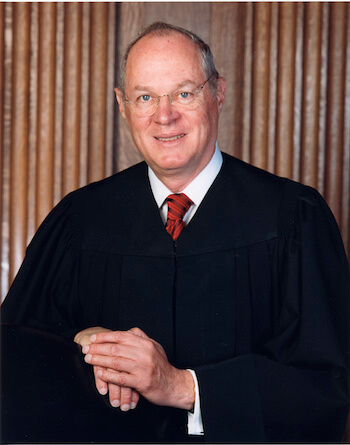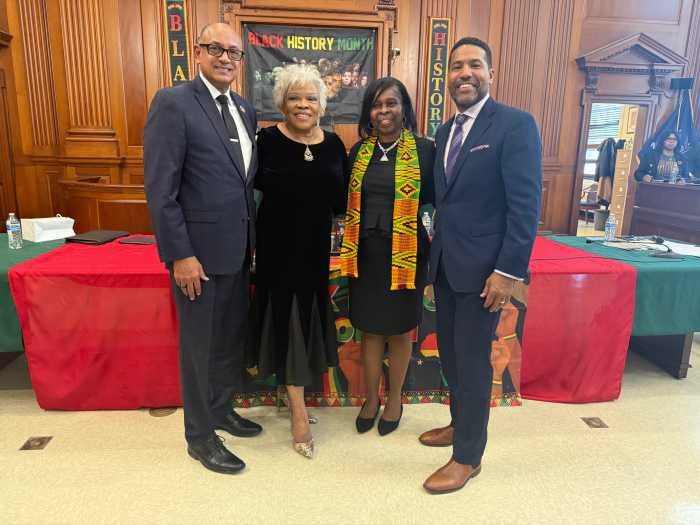Juliet Evancho, one of three transgender plaintiffs from the Pittsburgh area who prevailed this week in federal court. | LAMBDALEGAL.ORG
In granting a preliminary injunction to three transgender high school students represented by Lambda Legal who are challenging a school board policy barring them from using bathrooms consistent with their gender identities, a federal judge, on February 27, broke new ground in relying on the US Constitution’s Equal Protection Clause.
To date, the bathroom access issue has revolved around the interpretation of Title IX of the Education Amendments of 1972, which bars discrimination based on sex in schools receiving federal money. Given the Trump administration’s action last week withdrawing two letters from the Obama administration that held that gender identity discrimination claims were covered by the sex discrimination protections and the Supreme Court’s consideration next month of a Title IX claim by Gavin Grimm, a transgender high school student in Virginia, Judge Mark R. Hornak of the Western District of Pennsylvania said he “could not conclude” that the three plaintiffs had “a reasonable likelihood of success” on their Title IX claims, but could prevail on equal protection grounds.
Hornak noted that the students — Juliet Evancho, Elissa Ridenour, and A.S. — had been allowed to use the appropriate bathrooms at Pine-Richland High School in the Pittsburgh area as early as the 2013-14 school year and were widely accepted by their classmates and teachers, but faced problems only after one student’s parents learned of the situation and complained. After a series of boisterous public meetings, the school board imposed its restrictive policy last September.
Pittsburg federal court sidesteps Title IX, adopting constitutional approach instead
In reviewing the privacy protections afforded by the design of Pine-Richland’s bathrooms, Horack quickly concluded that students’ privacy provided no justification for the policy, as the school board had argued.
In evaluating whether the trans students’ equal protection rights were violated by the school board action, Hornak first had to determine what standard of judicial review applies to government policies discriminating based on gender identity, since neither the Supreme Court nor the Philadelphia-based Third Circuit Court of Appeals has answered that question. He concluded that the “intermediate standard” used in sex discrimination cases should apply, rejecting the school board’s argument that the least demanding standard — that it simply show some rational basis for its policy — be used.
In line with Supreme Court criteria for establishing an intermediate standard for review, Hornak found that transgender people have historically been subjected to discrimination and have little political power, that they are characterized by an immutable defining characteristic, and that the characteristic bears no relationship to their ability to contribute to society.
Based on Hornak’s conclusion, the school board has the burden of justifying its discriminatory policy, and the judge concluded it was likely to fall short because the facts do not demonstrate an “exceedingly persuasive justification” related to “an important governmental interest.”
The policy, wrote Hornak, was not shown to be “necessary to quell any actual or incipient threat, disturbance or other disruption of school activity” nor did it address any privacy concern “that is not already well addressed by the physical layout of the bathrooms.” In response to the usual hypothetical but overheated fears voiced, he pointed out that school policy and state law already deal with “unlawful malicious ‘peeping Tom’ activity by anyone pretending to be transgender.”
The school board argued that some parents threatened to withdraw their students from school if the trans students were not kept out of the restrooms, but the court did not accept that justification. The 14th Amendment’s Equal Protection Clause, Hornak wrote, “is neither applied nor construed by popular vote.”
The court also rejected the school board’s argument that single-user restrooms “sprinkled around” the school provided a sufficient “safety valve” for the plaintiffs, making an injunction unnecessary. Hornak found that it is “no answer under the Equal Protection Clause that those impermissibly singled out for different treatment can, and therefore must, themselves ‘solve the problem’ by further separating themselves from their peers.”
The judge concluded that such differential treatment inflicted irreparable harm on the plaintiffs and that ordering the school to allow them to use gender-appropriate restrooms would “cause relatively little ‘harm’… if any harm at all” to the interests of the school and its students, based in good part on the record of the three youths having used the appropriate restrooms for several years without incident.
Hornak hedged his bets against an appeals court second-guessing him by also ruling that the school board policy would probably also not survive the least demanding level of judicial scrutiny — rationality review — since it advanced none of the goals the school board outlined.
Hornak’s ruling would provide relief to any student at a public educational institution, but would not apply to non-governmental institutions even if they were receiving federal support through research grants or student loan financing. That second group of institutions, however, would fall under Title IX requirements, should the Supreme Court conclude, in the Gavin Grimm case, that the federal education law’s sex discrimination prohibition protects transgender students.
Given the lack of a Third Circuit appellate precedent on the question of the appropriate standard of review, it would not be surprising if the school board seeks a stay of Hornak’s injunction pending appeal. It’s possible, of course, that the Supreme Court’s action in the Grimm case could outpace the progress in this litigation.
Lambda Legal’s attorneys representing the plaintiffs are Omar Gonzalez-Pagan, Christopher Clark, and Kara Ingelhart, who are joined by local counsel in Pennsylvania, Tracie Palmer and David C. Williams of Kline & Specter, P.C.




































